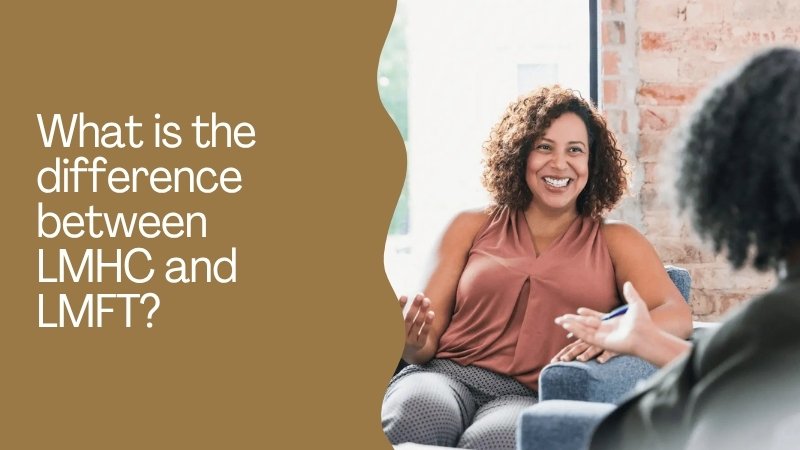LMHC (Licensed Mental Health Counselor) and LMFT (Licensed Marriage and Family Therapist) are both licensed mental health professionals, but they differ in their training, treatment approach, and areas of specialization.
LMHC – Licensed Mental Health Counselor
-
Focuses on individual mental health treatment.
-
Trained to diagnose and treat a broad range of emotional and psychological disorders such as:
-
Depression
-
Anxiety
-
Trauma and PTSD
-
Substance abuse
-
-
Often works with individuals, but may also offer group or couples counseling.
-
Treatment is often based on behavioral therapies like CBT (Cognitive Behavioral Therapy), DBT, or trauma-informed approaches.
LMFT – Licensed Marriage and Family Therapist
-
Specializes in relationships and family systems.
-
Trained to help people navigate:
-
Marital or relationship conflict
-
Family dynamics
-
Parenting issues
-
Life transitions affecting the family unit
-
-
Emphasizes how relationships impact mental health.
-
Works with couples, families, and sometimes individuals dealing with relational challenges.
Key Differences at a Glance:
| Aspect | LMHC | LMFT |
|---|---|---|
| Primary Focus | Individual mental health | Family and relationship dynamics |
| Common Clients | Individuals (all ages) | Couples, families, relationships |
| Issues Treated | Depression, anxiety, trauma, addiction | Conflict resolution, communication, divorce |
| Therapeutic Approach | CBT, DBT, trauma-focused care | Family systems, relational therapy |
| Work Settings | Clinics, hospitals, private practice | Private practice, family clinics |
Which One Should You Choose?
- If you’re struggling with personal mental health, an LMHC may be the best fit.
- If you’re facing challenges in a relationship or family setting, an LMFT is likely more specialized for your needs.
Summary:
- LMHC (Licensed Mental Health Counselor) focuses on individual mental health, treating conditions like anxiety, depression, and trauma.
- LMFT (Licensed Marriage and Family Therapist) specializes in relationships and family systems, helping with couples counseling, family conflict, and communication issues.
Both are licensed professionals, but their training and approach differ based on whether the focus is on the individual or the relationship.


